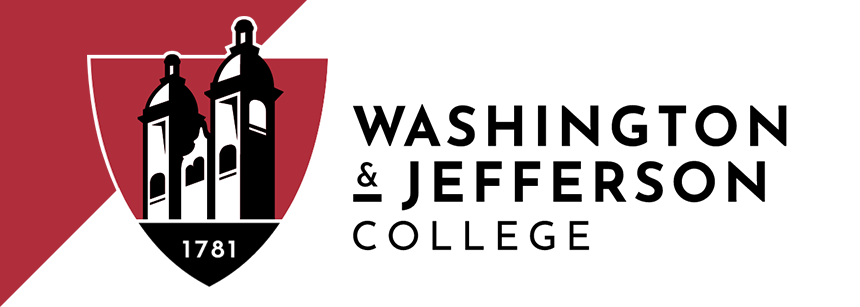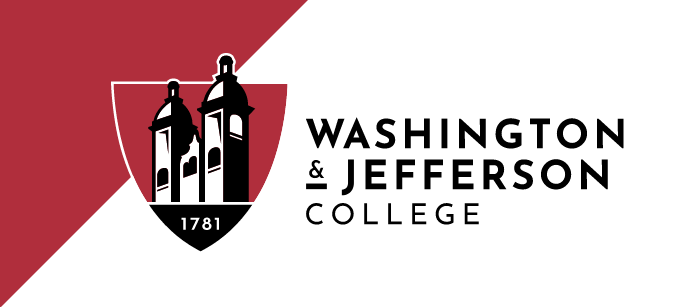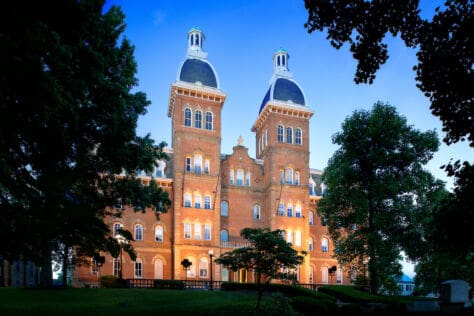W&J students who pursue an honors project are pushed far beyond the standard parameters of their academic programs. In 2020, in spite of new and unforeseen challenges related to the COVID-19 crisis, an unusually large group of nine students successfully completed honors projects.
Students begin an honors project at least one year prior to their anticipated graduation date and work continuously with their faculty advisor throughout their senior year to pursue independent research questions beyond the scope of their normal coursework. For the Class of 2020, in-person research needed to be suspended or adapted after spring break, introducing a new challenge to the process.
“[In 2020], just as the students were concluding work on their projects and beginning to schedule their reviews, W&J closed its campus operations to protect the community against COVID-19. On the day W&J’s move to remote instruction was announced, the Academic Status Committee reached out to assure students that the faculty stood enthusiastically behind them, and in every case, the students worked constructively with their advisors and reviewers through the changing circumstances of the spring semester,” said Associate Professor of English Tara Fee, Ph.D., chair of the Academic Status Committee.
Students pursued honors-level research in seven different fields. The program even had a first: an interdisciplinary project by computing and information studies (CIS) and economics major Collin McClaine ’20, who earned honors in both subjects.
McClaine worked with faculty advisors Associate Professor of Economics Leslie Dunn, Ph.D., and Professor of CIS Amanda Holland-Minkley, Ph.D., on his project, “The Economic Impact of Publicly Announced Security Breaches.” McClaine used methodologies from both subjects to explore how the analyses from each perspective complement each other.
“Collin had to be proficient with the techniques from both disciplines and able to consider why those disciplines might treat problems like cleansing data or assessing model accuracy differently,” said Holland-Minkley.
Laurel Sipe ’20, a triple major in international business, Spanish, and German, had a unique project of her own—she opted to take on a project outside of her field, earning honors in economics.
Her project, “Entrepreneurial Metropolitans & the Socioeconomic Factors that Drive Them,” correlates socioeconomic factors to the “economic vibrancy” of metropolitan areas in the U.S., using the data to determine which factors contribute to entrepreneurial growth.
“Laurel’s research is the type of work we love to see. She pulled knowledge and perspectives from different classes, different majors, different professors, her own travel experiences, and internships she completed during her four years at W&J,” said Associate Professor of Economics Rob Dunn, Ph.D., who advised Sipe. “Laurel is an excellent example of just how many valuable experiences a motivated and ambitious student can pursue at W&J and how those individual experiences can come together in ways that may not have been expected.”
Professor of Psychology Elizabeth Bennett, Ph.D., worked with three students, Maxwell Box ’20, Alec C. Drabish ’20, and Rianna Maree Seighman ’20, all of whom had to determine the best way to try to continue to collect data or conclude their research when the pandemic shut down campus and the state. Bennett maintained frequent, in some cases daily, communication with the students to help them adapt.
“Working on an Honors Project with Dr. Bennett was a deeply fulfilling experience. Dr. Bennett was incredibly flexible in assisting me to complete the project, especially during the transition to remote learning this year,” Box said.
“I am incredibly proud of all of them for remaining undaunted by the need to find new ways to complete their projects during the pandemic,” Bennett said of her students.
Psychology major Erica Tronetti ’20 discovered the topic of her project after meeting with Professor of Psychology Michael Crabtree, Ph.D. and Steve Roman, chief planning officer at Greenbrier Treatment Center, and discussing government funding issues for therapy-based treatment. Research for her project, “Opioid Addiction Treatment: The Effectiveness of Medically Assisted Treatment Compared to Other Types of Therapy,” involved interviewing program directors from treatment facilities around Washington County about their program’s success and average retention rates.
“I loved how I was able to pick a topic that I was passionate about, and my advisors shared in my enthusiasm by offering resources and providing feedback,” said Tronetti. “The honors process is definitely a lot of work, but it was enjoyable because I loved my research.”
Sara Maute ’20 started chemistry lab work with Associate Professor of Chemistry Deborah Polvani, Ph.D., in August 2019, learning a new instrument and developing good technique that yielded successful results by December 2019 with a few more months of study into 2020. Though her scheduled poster presentation at a national chemistry conference was canceled, Maute had enough lab work completed to participate in the virtual poster session and successfully present her project.
Jordan Thomas ’20, a French and history major, completed a year of research on the past and present racial relations in France and its former colonies with a focus on mixed-race individuals in Algeria and France. Thomas, who was advised by Visiting Assistant Professor of European History Leah Goldman, Ph.D., finished a large part of his thesis before spring break, and during the stay-at-home order, he balanced the remaining work on his project with his coursework and his job, helping to fund his education.
“Writing my honors thesis was the most enriching experience that I had at W&J because it was the culmination of what I had learned from being both a French and History major. This project gave me vital skills in planning, prep, and writing larger projects that I will carry on with me as I start graduate school,” Thomas said.
Biochemistry major Benjamin Freedman ’20 got an even earlier start, basing his project on research he conducted on the roles of cancer-associated fibroblast (CAF) cells in prostate cancer during two undergraduate research summer internships in the Department of Surgery at NorthShore University HealthSystem, in Evanston, Ill.
“The immense amount of support that I received from the W&J community was one of reasons for my success both during this project and throughout my undergraduate career at W&J,” said Freedman, son of Neil ’88 and Marijo Freedman ’88.
“Honors, in a normal year, is very rare. In 2019, only four students graduated with Honors,” said Professor of Biology Candy DeBerry, Ph.D., Freedman’s faculty advisor. “To complete Honors this year, in the midst of the SARS-CoV-2 pandemic and via emergency remote instruction, is truly extraordinary.”
“At W&J I have found that your education is whatever you make of it, and that’s what’s so valuable about the honors process,” said Drabish.
2020 W&J Honors Graduates
- Maxwell Box ’20, Psychology: “Predicting Counterproductive Work Behavior: Exploration of an Alternative Personality Inventory”
- Alec C. Drabish ’20, Psychology: “Victim and Observer Perceptions and Misperceptions of Organizational Justice”
- Benjamin Freedman ’20, Biochemistry: “Examination of Fibroblast-Derived Components Within the Stromal Environment in Human Prostate Cancer”
- Sara Alison Maute ’20, Chemistry: “Solid-State Synthesis of Coordination Compounds”
- Collin McClaine ’20, Economics and Computing and Information Studies: “The Economic Impact of Publicly Announced Security Breaches”
- Rianna Maree Seighman ’20, Psychology: “Stress and Trauma in the Correctional Environment: Identifying the Impact on Inmates and Staff”
- Laurel Sipe ’20, Economics: “Entrepreneurial Metropolitans & the Socioeconomic Factors that Drive Them”
- Jordan Thomas ’20, History: “Le Métissage Past and Present: France’s Construction of Racial Hierarchy and the Marginalization of the Franco-Algerian Métis Community”
- Erica Tronetti ’20, Psychology: “Opioid Addiction Treatment: The Effectiveness of Medically Assisted Treatment Compared to Other Types of Therapy”


